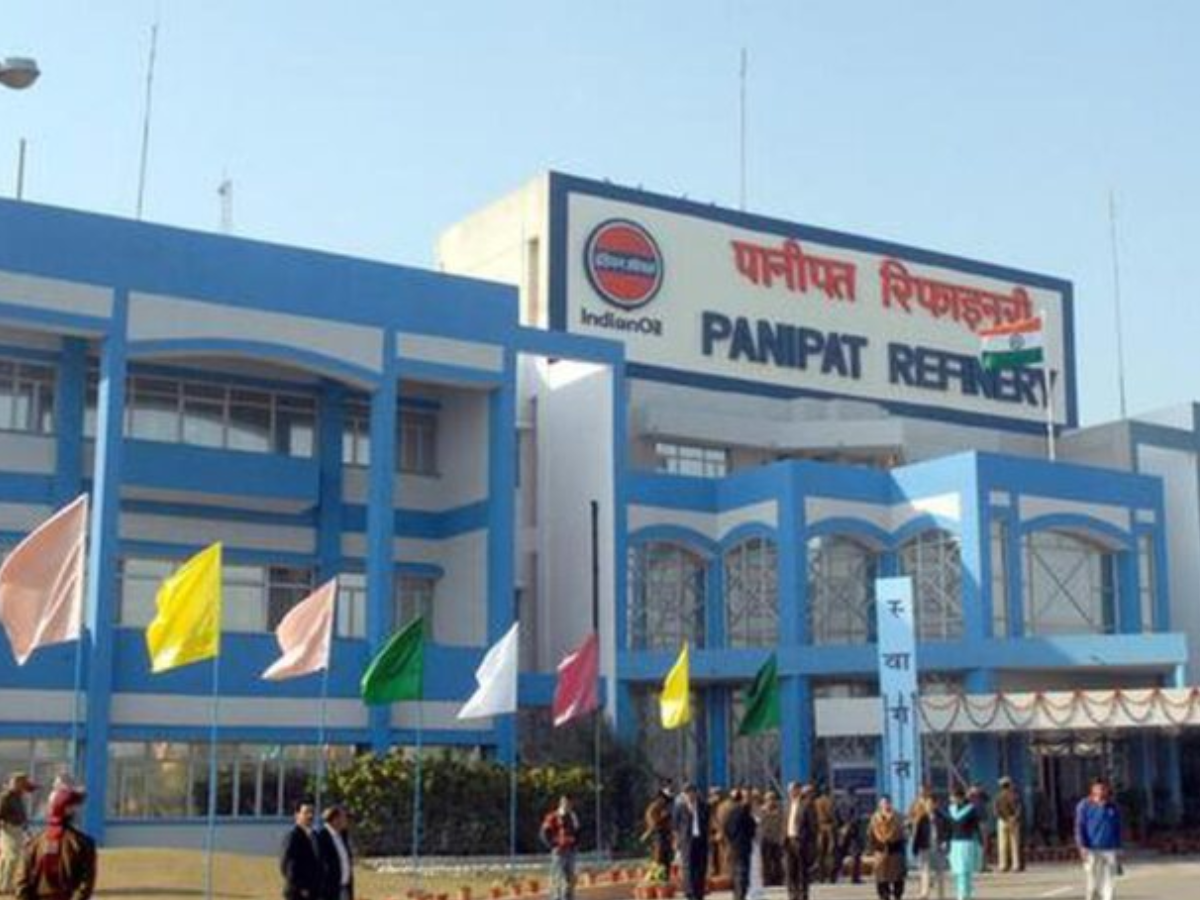Panipat Refinery Certified as India’s First Sustainable Aviation Fuel Producer
Civil Aviation Minister Ram Mohan Naidu Kinjarapu announced on Saturday that Indian Oil’s Panipat Refinery has become India’s first certified Sustainable Aviation Fuel (SAF) producer. On social platform X, he confirmed that production will “begin soon as per ICAO’s CORSIA standards with an annual capacity of 3 crore litres.” This marks a major step forward for India’s aviation sector, aiming to cut carbon emissions significantly. The Minister highlighted the government’s plan to meet the goal of blending 1% SAF in all international flights by 2027. “With more such facilities coming up in the country, we are well on the path to meet the target of 1 per cent SAF blending in all international flights by 2027 and cut our aviation carbon footprint,” he added. He praised Prime Minister Narendra Modi, calling this achievement a “milestone” under his leadership.
Proud to share that Indian Oil’s Panipat Refinery has been certified as the country’s first Sustainable Aviation Fuel (SAF) producer. Production is set to begin soon as per ICAO’s CORSIA standards with an annual capacity of 3 crore litres.
With more such facilities coming up in… pic.twitter.com/9CrGNuu5lQ
— Ram Mohan Naidu Kinjarapu (@RamMNK) August 9, 2025
India’s Ethanol Blending Journey: From 1.53% To 10% Ahead Of Schedule
India’s ethanol blending has witnessed remarkable growth over the last decade. It increased from just 1.53% in 2014 to an impressive 10% by 2022—achieved five months ahead of schedule. Originally targeting 20% blending (E20) by 2030, India advanced the target to 2025 and has already met it in the current Ethanol Supply Year. Ethanol production soared from 38 crore litres in 2014 to 661.1 crore litres by June 2025. This surge has played a vital role in reducing India’s reliance on imported crude oil, saving approximately Rs 1.36 lakh crore in foreign exchange. The Centre introduced E20 blending to improve energy security, lower carbon emissions, and enhance air quality.
India’s Climate Goals and SAF: A Broader Environmental Vision
India continues to push forward its environmental commitments, especially following Prime Minister Narendra Modi’s “Panchamrit” pledge at COP26 in Glasgow in 2021. This includes reaching 500 GW of non-fossil electricity capacity, generating half of all energy requirements from renewables, and cutting emissions by 1 billion metric tonnes by 2030. India also aims to reduce GDP emissions intensity by 45% and achieve net-zero emissions by 2070. The SAF certification at Panipat aligns with these goals by reducing aviation’s carbon footprint. While India has no plans to mandate ethanol blending with diesel yet—currently experimental—it remains committed to sustainable fuel solutions.
(With Inputs From ANI)
Also Raed: Union Cabinet Approves Rs 300 LPG Subsidy For PMUY Beneficiaries In 2025-26
Aishwarya is a journalism graduate with over three years of experience thriving in the buzzing corporate media world. She’s got a knack for decoding business news, tracking the twists and turns of the stock market, covering the masala of the entertainment world, and sometimes her stories come with just the right sprinkle of political commentary. She has worked with several organizations, interned at ZEE and gained professional skills at TV9 and News24, And now is learning and writing at NewsX, she’s no stranger to the newsroom hustle. Her storytelling style is fast-paced, creative, and perfectly tailored to connect with both the platform and its audience. Moto: Approaching every story from the reader’s point of view, backing up her insights with solid facts.
Always bold with her opinions, she also never misses the chance to weave in expert voices, keeping things balanced and insightful. In short, Aishwarya brings a fresh, sharp, and fact-driven voice to every story she touches.







